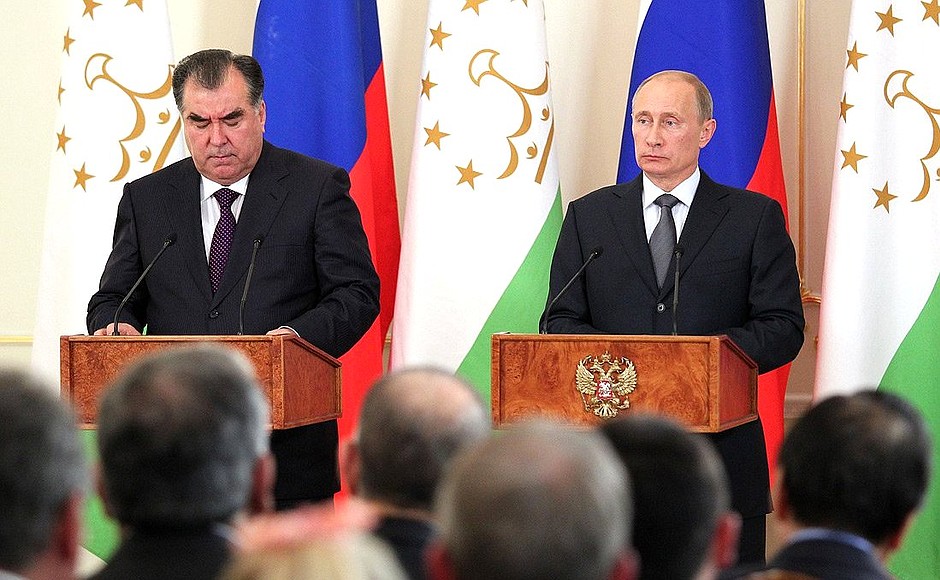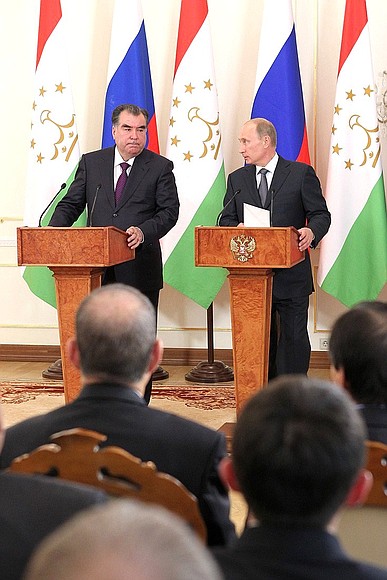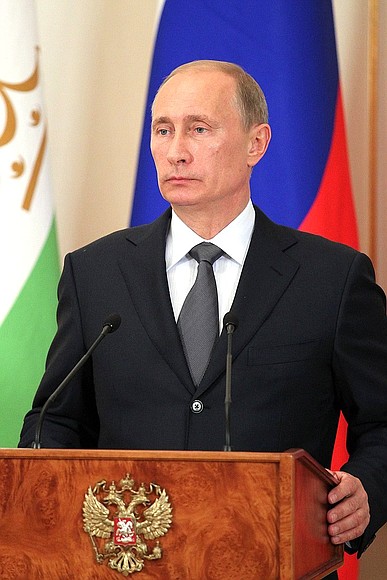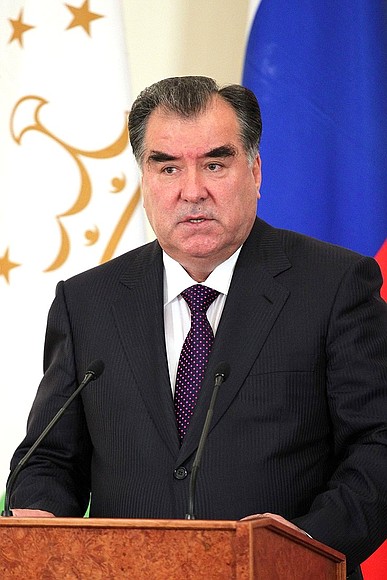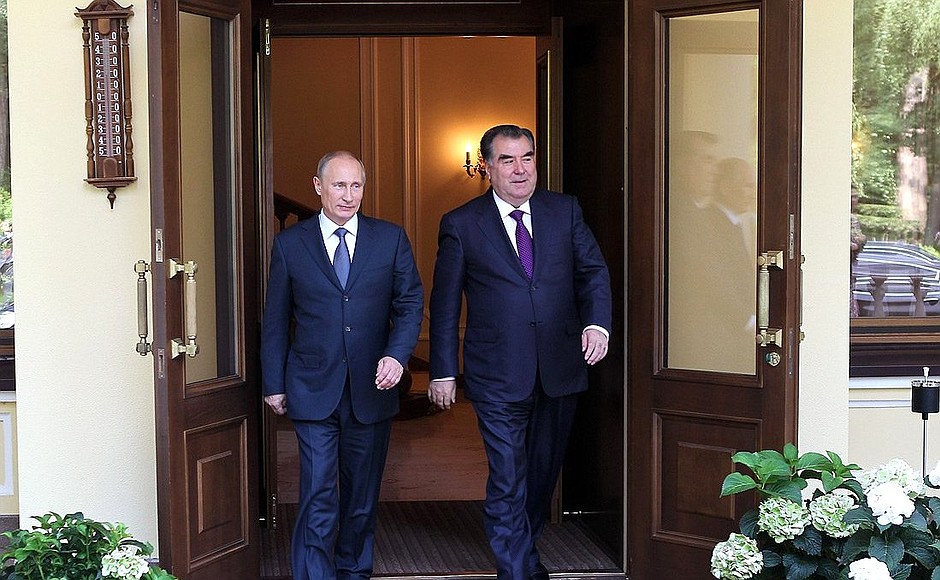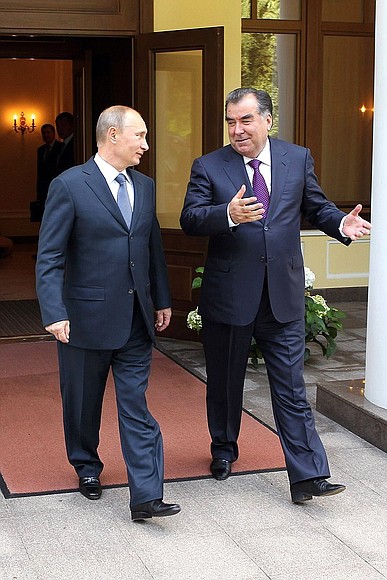President of Russia Vladimir Putin: Mr Rahmon, colleagues, ladies and gentlemen,
We have just concluded our talks with the President of Tajikistan. They were constructive and business-like as always.
Russia and Tajikistan are united by time-tested ties as allies and strategic partners. The cooperation that we have built on this reliable foundation plays an important part in ensuring stability and security throughout Central Asia.
We looked in detail at the implementation of the agreements signed last October in Dushanbe, particularly the entry into force of the agreement extending Russia’s use of the military base on Tajikistani soil. This base is home to the largest Russian Armed Forces ground forces group stationed outside our national borders.
Russia has already completed all of the necessary formalities in this respect, and the process is near completion in Tajikistan. There is a common understanding that we will soon be able to begin this very important agreement’s practical implementation.
See also
We exchanged views on other key aspects of bilateral relations. Russia is one of Tajikistan’s main trade and economic partners, accounting for 21 percent of the republic’s foreign trade. True, as I discussed with the President, the figures dropped a little over the January-May period. We think this is a temporary decrease and we will do everything possible to change this situation. Indeed, this was one of the reasons for the meetings today. We agreed to decide on measures to improve the situation. We have real opportunities not just for returning to, but also surpassing, our previous trade level.
I note that money transfers from Tajikistani citizens working in Russia play a substantial part in supporting Tajikistan’s economic development. In this respect, we discussed with Mr Rahmon our cooperation on immigration issues. We agreed to work together and take timely action to settle problems that arise in this area.
Russia is the biggest foreign investor in Tajikistan with accumulated investment of $1.2 billion. The Russian mobile telecommunications companies Megafon and Beeline have invested around $200 million in joint ventures in Tajikistan and now offer the country fourth-generation mobile telecommunications services using new broadband technology.
We are also carrying out big projects in the energy sector. Gazprom supplies 40 percent of the oil products consumed in Tajikistan. Gazprom is currently carrying geological exploration works at promising fields there. Financing for this project in 2013 comes to $15 million.
We want to make more active use of the potential that cooperation at regional level between the two countries offers. More than 60 Russian regions have ties with partners in Tajikistan. There are around 130 companies with partnership ties in Tajikistan, including at the small- and medium-sized business level.
We have a common understanding on continuing to develop our ties in science and education. More than 4,700 Tajikistani citizens are studying in Russian universities. We allocated 1,063 budget-funded places through regional educational programmes for Tajikistani citizens in 2012–2013.
The branches of Lomonosov Moscow State University and National University of Science and Technology (MISIS) already open and working in Dushanbe will be joined this year by a branch of the Moscow Power Engineering Institute. The Russian-Tajikistani (Slavic) University is working well, with more than 4,500 students and a staff of around 300 teachers.
True, President Rahmon says that this is not enough and that we need to be more active in this area. I agree with him. We will draft the necessary instructions for the relevant ministries to get them to expand this work, including training Russian language teachers here in Russia, and in Tajikistan.
We had a useful exchange of views on issues on the international agenda. In particular, I note our common position on the situation in Afghanistan, including in connection with the withdrawal of coalition forces from Afghanistan in 2014.
We agreed to intensify our efforts to combat terrorism, drugs trafficking, and trans-border crime. Coordination of our countries’ efforts through the CSTO, CIS, and Shanghai Cooperation Organisation plays an essential part in achieving results in these areas. Both Russia and Tajikistan place great importance on participation in these organisations.
In conclusion, I want to thank Mr Rahmon and all of our Tajikistani friends and partners for this useful and business-like discussion. Thank you for finding the time for this visit.
<…>
